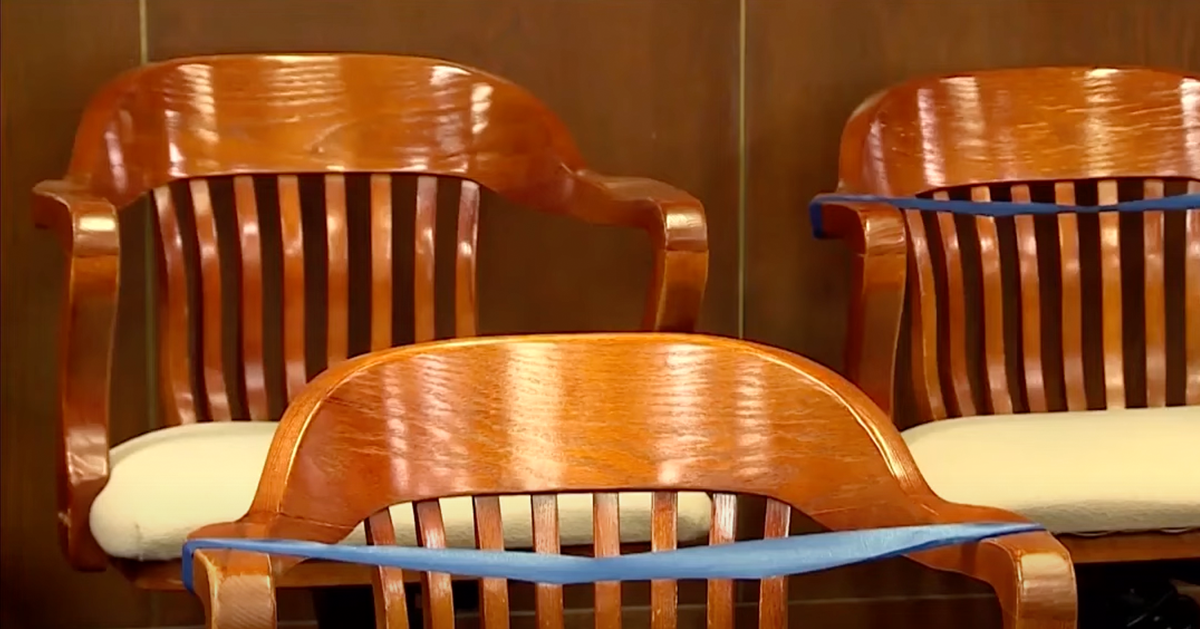NY v. Trump: Key Witness Denies Trump Directed Cohen Payback
Amid the bustling streets of Manhattan, the ongoing hush money trial of Donald Trump casts a spotlight on allegations of concealed financial dealings linked to the former president.
The trial scrutinizes claims that Trump's organization improperly accounted for payments meant to silence an alleged affair, but a prosecution witness testified Monday that he was not directed by the former president with regard to the disbursements at issue, as Fox News reports.
The focus of the case revolves around payments made by Trump's former attorney, Michael Cohen, intended to prevent adult entertainer Stormy Daniels from disclosing a purported extramarital affair with Trump in 2006.
Understanding the Basis of the Allegations
Trump's is accused of logging these reimbursements as legal expenses, an action prosecutors argue was done to either commit or hide another crime, thus elevating the charges to the felony level. This has led to 34 counts of falsifying business records against Trump.
Jeffrey McConney, who served as the controller for the Trump Organization, provided testimony regarding how these transactions were handled internally. According to McConney, the organization's CFO, Allen Weisselberg, directed him to disburse $35,000 monthly payments to Cohen, which concluded in December 2017.
These reimbursements began via a trust but later came directly from Trump’s personal account, cumulating in a total of $420,000 paid to Cohen, adjusted grossly for tax reasons. McConney stated that the arrangements for these payments were made without Trump’s direct involvement.
Witness Testimony Highlights Lack of Direct Orders from Trump
During the trial, McConney emphasized that neither Trump nor Weisselberg discussed the specifics of the reimbursement process with him. This point was reiterated during cross-examination by Trump’s defense attorney, Emil Bove, who questioned McConney about Trump's involvement.
"President Trump did not ask you to do any of the things you just described ... correct?" Bove asked, to which McConney replied, "He did not." This testimony suggests a degree of separation between Trump and the decisions made regarding Cohen’s reimbursements.
Bove further probed, "And as far as you know, President Trump did not ask anyone to do those things?" McConney’s response, "Allen never told me that," seemingly strengthened Trump's defense, indicating no direct order was given by Trump regarding the financial arrangements.
Political Tensions Surround the High-Profile Case
The trial, which began in mid-April, is not only a legal battle but also a politically charged event, with Trump labeling it a "scam" orchestrated by the Biden administration. This claim reflects the contentious atmosphere surrounding the proceedings.
A gag order has been placed on Trump, restricting his ability to publicly discuss the trial's details or the participants. Despite this, Trump has faced fines for previous violations, and Judge Juan Merchan has warned that continued breaches could lead to jail time.
The Role of Legal Definitions and Practices in the Trial
Questions surrounding the nature of the payments and their classification have surfaced repeatedly during the trial. Emil Bove, during his questioning, highlighted the legal norm of categorizing payments to lawyers as legal expenses, a point that McConney affirmed.
"Michael Cohen was a lawyer?" Bove asked a question to which McConney responded affirmatively. This line of questioning aimed to underline the legality of the initial categorization of the payments, despite the contentious nature of their purpose.
The defense has focused on disentangling Trump from direct responsibility, emphasizing that typical business practices were followed, as per McConney's testimony. This strategy may influence the trial's outcome by questioning the intent behind the record falsifications.
The Judiciary’s Stance on Compliance and Decorum
Judge Juan Merchan’s remarks during the proceedings have underscored the seriousness with which he views Trump's compliance with its directives with regard to commenting on witnesses in the case. "The last thing I want to consider is jail," he stated, highlighting the potential consequences of violations.
Merchan's references to Trump's dual identity as both the former and possibly future president add a layer of gravity and public interest to the enforcement of the gag order and the proceedings at large.
As the trial progresses, the focus remains tightly on whether Trump’s organization crossed legal boundaries in handling the payments to Cohen and whether these actions were directed by Trump himself or were the result of decisions made by his associates.
Conclusion: Revisiting Key Points and Future Implications
In conclusion, the former president's trial continues to unravel the details of how Donald Trump’s organization managed payments intended to silence allegations of past indiscretions. With Trump’s direct involvement still under scrutiny, the outcome of this trial could significantly impact his public and legal standing.
Key testimony from Jeffrey McConney and the rigorous examination of the organization's financial practices shape a narrative that remains central to understanding the full scope of the allegations against Trump.





